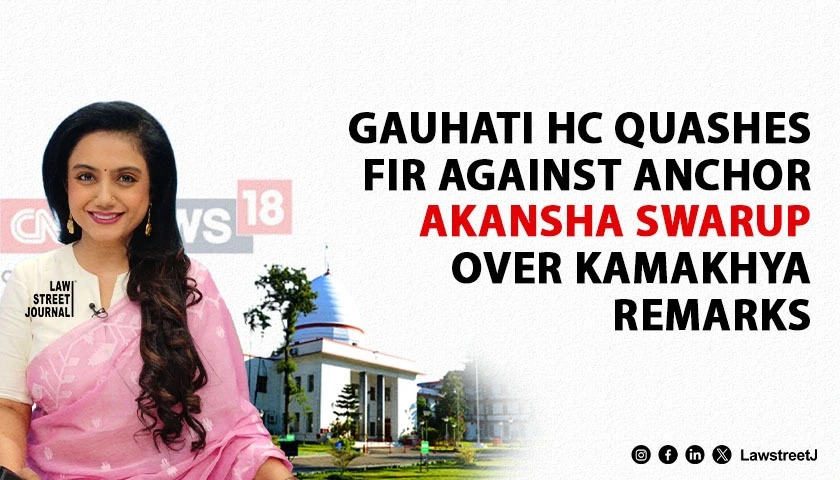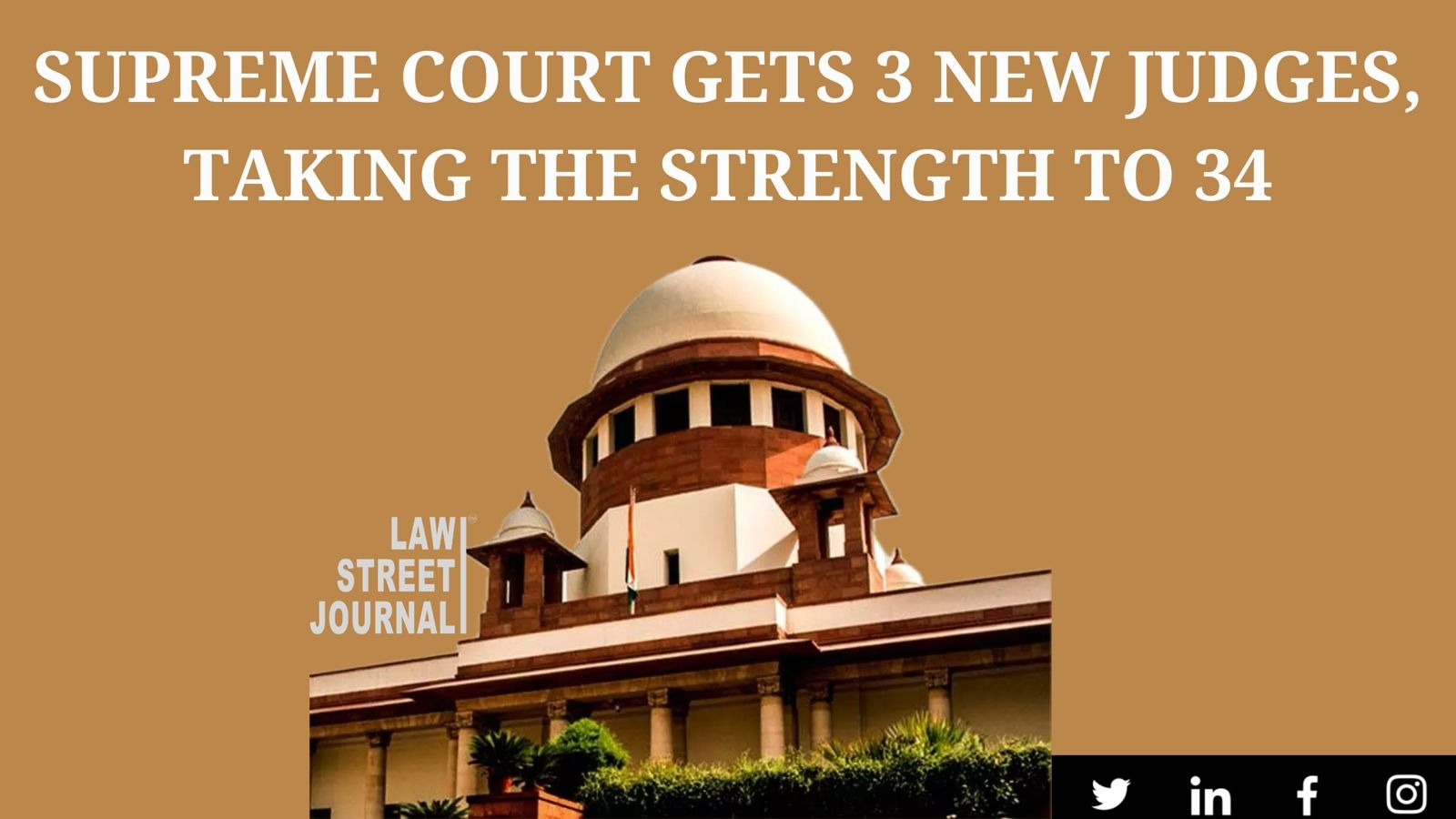Gauhati: In a recent ruling, the Gauhati High Court set aside criminal charges filed against a news presenter who made controversial statements about human sacrifice at the Maa Kamakhya Temple during a broadcast, holding that her remarks, though careless, did not demonstrate the malicious intent necessary for criminal liability.
Justice Shamima Jahan examined the requirement of deliberate malicious intention under the Bharatiya Nyaya Sanhita, while stressing that journalists must exercise greater responsibility when broadcasting on sensitive religious matters.
Akansha Swarup, working as a presenter for CNN-News18, had approached the court seeking to have FIR No. 004/2025 set aside. The case was filed on 12.06.2025 at the Crime Branch Police Station, Guwahati, under Sections 196(2), 299, and 302 of the BNS, 2023, following a television interview she conducted.
The FIR alleged that during a national broadcast, Swarup made unverified claims about human sacrifice practices at the Maa Kamakhya Temple. According to the police, her statement was presented as fact rather than speculation. The complaint suggested that these remarks hurt religious sentiments, threatened public peace, and could have triggered law and order problems.
During the interview, Swarup asked whether the family suspected a tantric killing, referencing that “they had gone to Kamakhya, where sacrifices or human sacrifices are offered.” The court noted that these middle words appeared to be the anchor’s own statement rather than something she heard from the victim’s relatives.
Swarup’s counsel argued that she was merely reporting what the deceased’s family members had told her, not expressing her own views. They pointed to the use of “they” in her questions, suggesting she was conveying others’ suspicions rather than making personal assertions about temple practices.
Following the broadcast, CNN-News18 issued an apology acknowledging the error. The channel admitted the anchor had wrongly referred to human sacrifice at the holy temple, calling it a “complete error of judgment.” All related content was removed from its digital platforms, and the apology was also published in The Assam Tribune.
The prosecution, however, countered that the transcript provided by Swarup was incomplete. They presented the co-accused’s statement from the case diary, where the deceased’s cousin clarified she had no personal knowledge of any such practices at Kamakhya and had merely followed the anchor’s lead during questioning.
The court examined whether Section 196(2) applied, which covers offences committed at places of worship or during religious ceremonies. The court, however, found this provision inapplicable since the comments were made during a television broadcast, not at a temple or during worship.
Turning to Section 299, which criminalizes deliberately insulting religious beliefs with malicious intent, the court found the necessary mens rea absent. While acknowledging the statement was improper, Justice Jahan concluded that Swarup lacked the deliberate malicious intention to outrage religious feelings or insult religious beliefs.
The court described her conduct as careless rather than malicious: “It seems she had carelessly made that statement without any thoughtful consideration.” However, the court added that such remarks “should not have been uttered by the petitioner in a public forum.”
Additionally, while examining the applicability of Section 302, which punishes deliberately hurting religious beliefs, the court found that an examination of the interview’s content showed no deliberate intention on Swarup’s part. The interview focused on investigating the mysterious death of Raja Raghuvanshi, aiming to present public interest information by questioning his relatives about possible circumstances surrounding his death.
The court also considered whether Section 196(1)(a) might apply, which deals with promoting disharmony or enmity between groups. Justice Jahan concluded that no reasonable person could find that Swarup’s questions or the interview content aimed at creating enmity or promoting disharmony between religious or other groups.
“Every case depends on its own facts and circumstances,” the court observed. Nevertheless, Justice Jahan issued a warning that the statements were “utterly not required in the facts of the case” and reflected carelessness by both the anchor and the interviewee. The court stressed that “statements made in a public forum should be well thought out.”
The court directed Swarup to refrain from making such statements in the future without proper authority and validation, particularly through public media platforms.
Finding that the FIR failed to disclose cognizable offences under the charged provisions, the court invoked its inherent powers under Section 528 of the BNSS, 2023. The judgment referenced the Supreme Court’s guidelines in State of Haryana vs. Ch. Bhajan Lal, which permit quashing FIRs when allegations, even if taken at face value, do not constitute any offence.
The court ultimately set aside Crime Branch P.S. Case No. 04/2025, bringing the criminal proceedings against Akansha Swarup to an end “for the ends of justice.”
Senior Counsel K.N. Choudhury, assisted by Advocate S.P. Sharma, represented the petitioner. Additional Public Prosecutor K.K. Das appeared for the State of Assam.
Case Title: Akansha Swarup vs. State of Assam and Another



![Justice Nongmeikapam Kotiswar Singh appointed as acting Chief Justice of Gauhati High Court [Read Press Release]](/secure/uploads/2023/01/lj_9707_5c969d0f-570f-400a-ba8b-3b65cf825540.jpg)
![Collegium Recommends Chief Justices of Delhi, Rajasthan, and Gauhati High Courts for Elevation to Supreme Court [Read Order]](/secure/uploads/2023/11/lj_9736_933a94de-bdaf-43de-944b-b0e58e17edb5.jpg)
![Supreme Court Mandates Strict Scrutiny in Sexual Harassment Allegations at Work [Read Judgment]](/secure/uploads/2023/11/lj_3478_eef290f2-6acf-4296-9ee0-adf54f275609.jpg)





